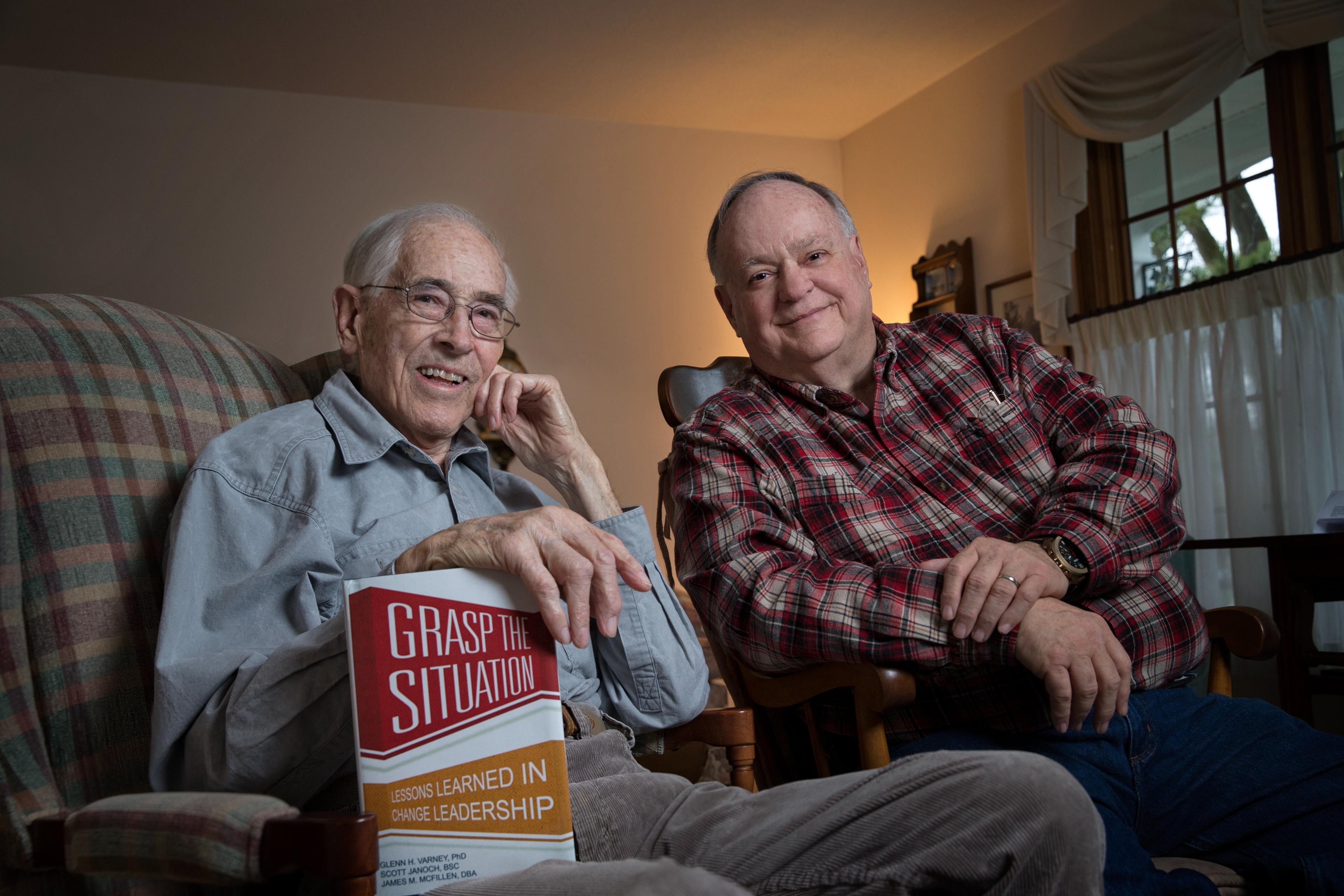
A timeless resource: BGSU organizational change management research still highly sought after
Estimated Reading Time:
The article “Organizational Diagnosis: An Evidence-Based Approach” has been read more than 58,000 times
More than a decade after an article on organizational change management authored by current and retired Bowling Green State University faculty members was published, its groundbreaking research continues to draw interest.
According to ResearchGate, the “Organizational Diagnosis: An Evidence-Based Approach” article has been read more than 58,000 times since its publication in 2012. It is the most frequently read article from BGSU accessed through its site.
“Often in management, there’s a focus on results,” said Dr. James McFillen, an emeritus BGSU business professor and the paper’s lead author. “It intends to be results-oriented rather than cause-oriented. To fix something, you first have to know what is wrong.”
The article's origins date back to the early days of the BGSU Executive Master of Organization Development program, established in 1974 by Dr. Glenn Varney, an emeritus business professor and co-author alongside McFillen; Dr. Deborah A. O’Neil, a professor of management and director of the master’s program; and Dr. William Balzer, emeritus psychology professor.
The program, housed in the Allen W. and Carol M. Schmidthorst College of Business, was the first in Ohio and third in the nation and has been widely recognized for excellence.
Following Varney’s tenure as the program’s director, McFillen led the organization development master's program for more than 15 years, beginning in 1994. He focused on the scientific side of organizational behavior, sparking the work that resulted in the Journal of Change Management article that has drawn interest from various disciplines.
“I decided that if I was going to be involved, it needed to be a scientifically based, research-driven program,” McFillen said. “Over time, I reworked the curriculum to give it a more behavioral science orientation to explain how organizations function and how you could change them.”
During the process of shifting the program’s focus to research, McFillen realized a vital piece was missing — the diagnostic process of determining causes of problems within an organization. He said existing organization development literature offered information on fixing problems but didn’t explain the process of diagnosing them.
“You had all these people writing articles about their favorite things to do to improve organizations, but there was no science behind it,” he said.
To find a solution, McFillen and his colleagues reviewed disciplines that used a diagnostic process to analyze problems, narrowing it down to engineering and medicine. While engineering uses a scientific method to diagnose issues, the process doesn’t account for human behavior. Consequently, they concluded the medical diagnosis model was better suited to organization development.
Using a medical model, the BGSU faculty members developed the concept of organizational diagnosis as the key step toward effective change and have successfully used it in many situations. They developed a rigorous process to correctly identify “symptoms” of problems plaguing an organization.
“The article continually finds a new audience,” Varney said. “If you are going to make a change in an organization, you need to use a very systematic way of doing it. Otherwise, it will backfire on you every single time. Organizations are going through tremendous change these days, and that’s why I think they are still reading our article now.”
First presented in the 2012 article, McFillen and Varney’s methods were later conveyed in a book they co-authored with Scott Janoch, “Grasp the Situation: Lessons Learned in Change Leadership,” which presents the organizational diagnosis process through lively stories from the authors’ experiences.
Related Stories
Media Contact | Michael Bratton | mbratto@bgsu.edu | 419-372-6349
Updated: 06/26/2024 01:04PM




